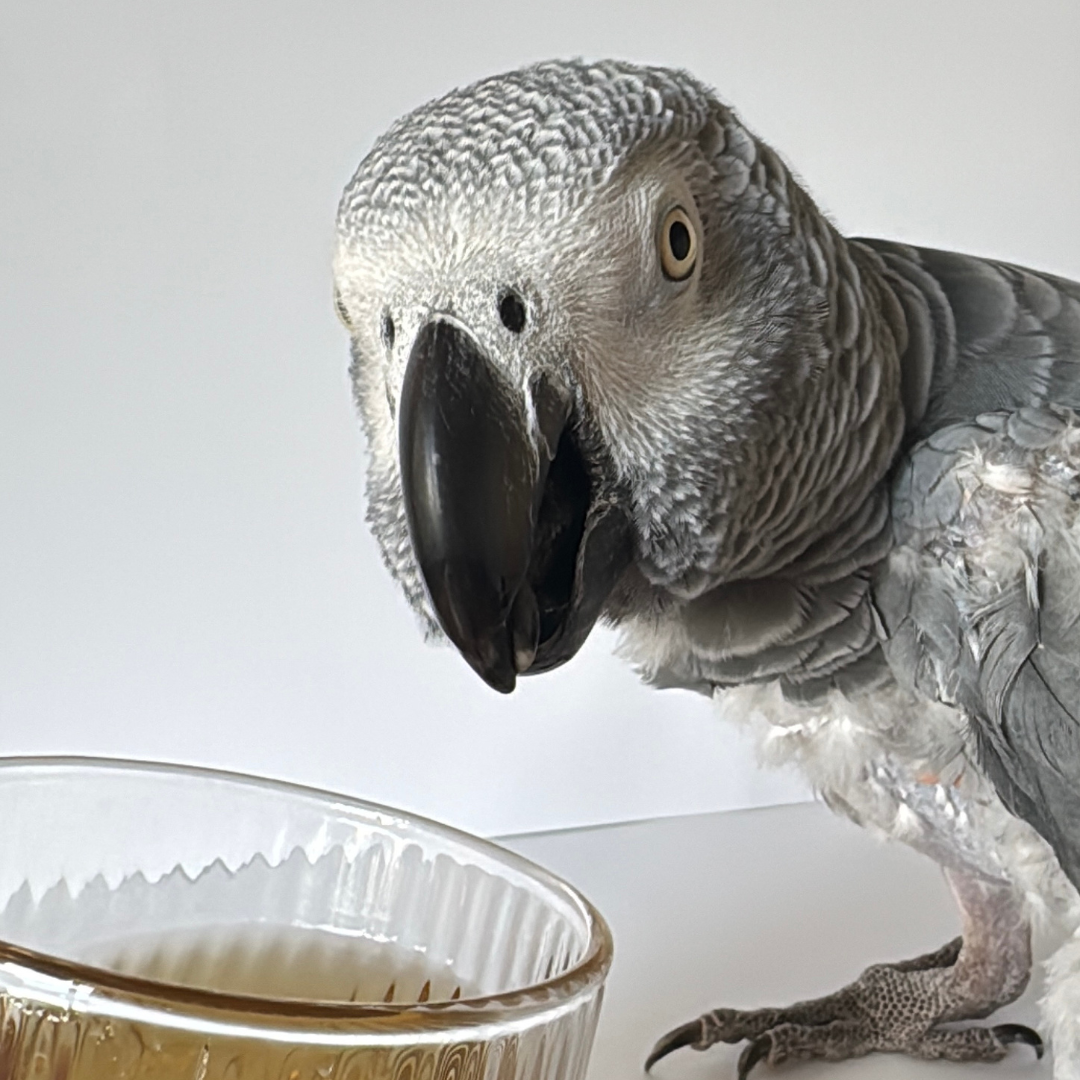
African Grey Parrot Personality, Food, and Care: What You Need to Know
Thinking about adopting or buying an African Grey parrot? These birds are some of the most famous parrots in the world, highly intelligent, striking in appearance, and well known for their ability to mimic human speech. But before you rush in, it’s vital to understand what life with an African Grey really looks like. They are not easy pets. They are demanding, expensive, and can live longer than most marriages. If you’re considering one, you need to be ready for a lifetime commitment.
African Grey Parrot Lifespan
African Greys are long-lived birds. With proper care, they can live 40–60 years in captivity, and some live even longer. This isn’t a pet you can “try out” for a few years. When you bring an African Grey into your home, you’re taking on a companion that may be with you for the rest of your life.

African Grey Personality
People are often drawn to African Greys because of their incredible talking ability. While it’s true that many Greys can mimic speech better than any other parrot, not all of them will talk. Some only whistle, others screech, and many make ear-piercing noises that can drive neighbours mad. If your sole reason for wanting one is “because they talk,” you’re heading for disappointment.
African Greys are also known for their complex personalities. They are highly intelligent but also very sensitive, prone to anxiety, plucking, and stress if their environment or diet isn’t right. Many Greys bond strongly with a single person in the household, often ignoring or even attacking everyone else. And here’s the twist: sometimes that bond forms with the person who didn’t want the bird in the first place, while the main caregiver becomes the target of aggression. This is not a species that suits children or inexperienced bird owners.
African Grey Parrot Diet
A healthy African Grey parrot diet should include:
- Fresh vegetables and fruit daily (think kale, broccoli, peppers, carrots, apples, berries, pomegranate, etc.)
- High-quality seed mixes (avoid cheap, filler-heavy ones; a varied, human-grade seed blend is best)
- Good quality pellets (if you choose pellets, pick cold-pressed and free from dyes or artificial additives)
- Sprouted seeds and legumes (for enzymes, protein, and gut health)
African Greys are especially prone to calcium deficiency and vitamin A deficiency, which can lead to brittle bones, seizures, respiratory issues, and poor feather quality. That’s why leafy greens, orange vegetables, and calcium-rich foods and supplements must be part of their daily routine.

African Grey Care and Enrichment
Greys are active, intelligent birds who need daily stimulation. Boredom and lack of enrichment often lead to behavioural issues like feather plucking, screaming, and aggression.
Good care includes:
- A large cage (the bigger, the better, minimum 4ft wide, tall enough to stretch their wings fully, as big as you can afford and fit in your space)
- Daily time outside the cage for exercise and flight (no wing clipping, flight is essential for their health)
- Foraging opportunities (scatter feeding, puzzle toys, homemade foraging trays)
- Sunlight or full-spectrum lighting to support vitamin D metabolism and calcium absorption
- Clean cage and environment to avoid respiratory illness from dust or mould
- Daily interaction and training — they need their brain worked as much as their body
The Cost of Owning an African Grey
African Grey parrots are expensive to keep. Food, toys, cage setup, and ongoing enrichment add up quickly. Then there’s veterinary care, exotic vet bills are far higher than a trip to the local dog and cat clinic. On top of that, Greys are destructive. Their powerful beaks can snap wood, chew furniture, and shred belongings. They need a steady supply of safe toys and materials to destroy, or they’ll find their own.
Are African Greys Good Pets?
The truth is, African Greys are incredible companions for the right person, but they are not easy pets. They demand time, money, patience, and a deep understanding of parrot behaviour. They aren’t suitable for children, for people who are out of the house most of the day, or for those who want a “quiet pet.”
If you’re ready for the reality, the mess, the noise, the expense, and the decades-long responsibility, then an African Grey can be one of the most rewarding, awe-inspiring animals you’ll ever live with. But if you’re not, it’s better for both you and the bird to admire them from afar.

FAQ: African Grey Parrot Personality, Food and Care
Do all African Grey parrots talk?
No. While many African Greys are famous for their speech and mimicry, not all of them talk. Some prefer whistling or making household sounds, and some stick to loud calls. Talking should never be the main reason to adopt one.
How long do African Greys live?
With proper diet and care, African Greys can live 40–60 years in captivity, sometimes longer. This makes them a lifetime commitment and one of the longest-lived pet birds.
What should I feed my African Grey?
Their diet should be varied and balanced, including fresh vegetables and fruit, high-quality seed mixes, sprouted legumes, and optionally, a good quality pellet. They need foods rich in vitamin A and calcium to avoid common deficiencies.
What are African Grey personalities like?
African Greys are stubborn, head strong, intelligent and know what they want (and they're not shy about letting you know that!). They can be funny and charismatic, as well as emotionally complex. They can also be quite fearful birds, unsure of new things, people, toys and routines.
How big should an African Grey’s cage be?
An African Grey needs a large cage, at least 4ft wide with plenty of height and depth to spread their wings. They also need several hours out-of-cage time daily to fly, exercise, and forage.
How much does it cost to own an African Grey?
The cost is significant. Between cages, toys, food, enrichment, and vet care, keeping an African Grey can run into hundreds or thousands of pounds per year. They also destroy toys, perches, and household items regularly, which adds to ongoing expenses.
